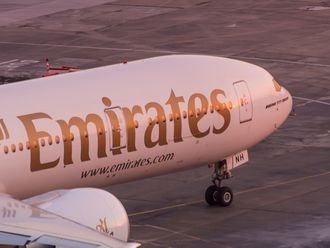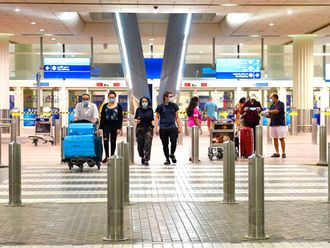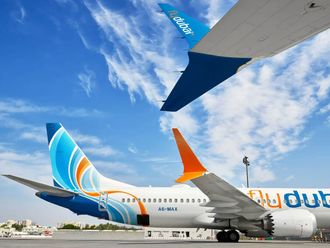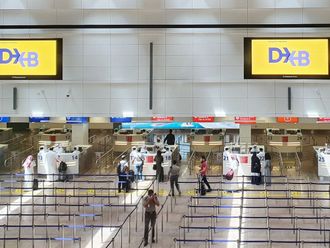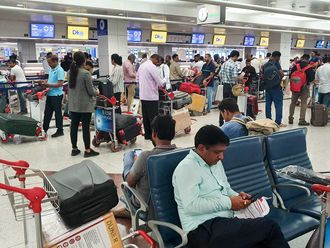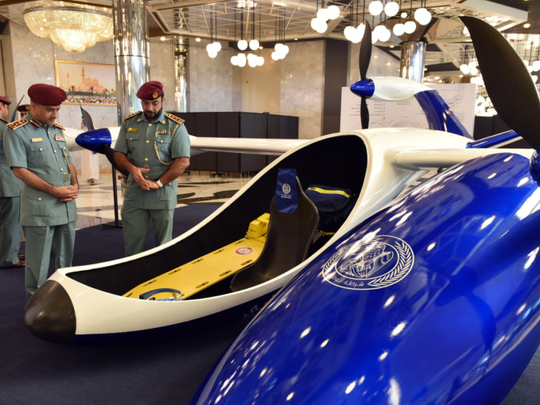
There is nothing futuristic enough for Dubai. The city has been working tirelessly to transform itself into a smart, integrated, connected and sustainable place to live in. The Dubai Future Foundation’s current initiatives comprise projects on smart housing, autonomous transport, 3D printing, blockchain applications, new drone services, artificial intelligence and robotics, development of new business models and ways of working in futuristic offices. It also has created the Museum of the Future, which displays concepts on how technology could evolve to enhance our living environment up to the year 2035.
To nurture an innovative ecosystem, the foundation has launched the Dubai Future Accelerators, which offers a collaborative programme for innovative companies to partner with the government in developing viable futuristic prototypes of products and services. The government units concerned include the Roads and Transportation Authority (RTA), Dubai Police, Dubai Health Authority (DHA), Dubai Electricity and Water Authority (Dewa), Dubai Holding, Dubai Municipality and the Dubai Knowledge and Human Development Authority.
The accelerator programme is designed to identify emergent technologies and businesses with the potential to address the most pressing challenges and opportunities not just for Dubai, but globally, and to support them in developing solutions for rapid deployment as “game-changing” products and services.
Infrastructure
A lot of innovative ideas have come up in the infrastructure sector. The RTA plans to deploy electricity-powered, autopilot drones as air taxis landing on rooftops of buildings and homes, calling it the world’s first self-flying taxi service. A passenger drone prototype can currently carry one person weighing up to 100kg and is able to fly up to 30 minutes or 50km at speeds up to 160km per hour. It is planned to become a normal part of Dubai’s public transportation in the future. A test flight was staged successfully in September.
Other futuristic projects the RTA is pursuing ahead of the World Expo 2020 are a Hyperloop system and self-driving vehicles, according to Mattar Al Tayer, RTA director general.
The US firm Hyperloop One, which has joined the Dubai Future Accelerators programme, said it could have an operational system built in the UAE by the time the Expo opens. According to Rob Lloyd, the firm’s CEO, it could become the world’s first operational Hyperloop system, which would see passengers travelling in special pods at 1,200km per hour, faster than a Boeing and almost at sonic speed, reducing the travel time between Dubai and Abu Dhabi to just 12 minutes.
In terms of driverless vehicles, Dubai aims to have 25 per cent of transport to be smart, driverless electric vehicles by 2030, with a 10-seater driverless van having successfully already completed a test run. This would include not only land-bound vehicles, but also boats and aircraft, and would increase productivity of citizens by 13 per cent and save people up to 396 million of hours wasted being stuck in traffic per year. It would first be tested in housing communities and later deployed all over the city.
Safety
In the safety and security sector, Dubai Police wants start-ups to consider manned and unmanned police drones that can be used to improve security across private property, housing communities and public areas, machine learning to create models for crime prediction, and facial recognition in security camera networks. There are also plans to build robot cops equipped with cameras for transmitting live images and identifying suspects, as well as a touch screen to report crimes and ask questions. According to the Smart Services division of the Dubai police, “robocops” will make up 25 per cent of the local police force by 2030. To assist the robocops, Dubai police also plans to deploy self-driving police cars as autonomously moving surveillance systems to search for wanted individuals, vehicles or objects left unattended.
Hospitality, health care
In the hospitality sector, some hotel chains are thinking about deploying robots for concierge, restaurant, room service and other services. Such hospitality robots have been successfully deployed in Japan. One particular appealing service in Dubai is the so-called coffee-copter, a drone that delivers iced coffee to beachgoers at Jumeirah Beach. Costa Coffee had a well-appreciated trial of the service in Jumeirah Beach, according to the firm’s head of marketing Shemaine Jones.
In the health care sector, the DHA is looking to work with startups to improve patient self-management of chronic disease, practice efficiencies and patient health outcomes up to 10 times through new technologies. Telecom provider Etisalat also wants to help reduce emergency room visits linked to chronic diseases by 30 per cent over the next 10 years through predictive health care management, Internet of Things, wearables, telemedicine and machine learning.
Home technology
The Gitex Technology Week in October in Dubai showed an abundance of new smart home devices such as automatically refreshing air quality sensors, computerised mirrors, smart fridges with new food delivery apps, robotic personal assistants that act as Wi-Fi hotspot, speaker, ambient light source, security camera, dinner reservation app and weather forecaster in one.
Dewa is exploring smart meters using predictive artificial intelligence and smart grids and pipe networks that allow smart home energy monitoring. According to Reem Abdulla Kamil Mustafawi, senior specialist, innovation and the future at Dewa, blockchain technologies will be used to improve services. Two futuristic customer service centres are also now open, providing services online through artificial intelligence and robotics.
3D printing
Dubai also wants to implement 3D-printing technology in 25 per cent of buildings and secure a 75 per cent reduction in general waste. The government has laid out the Dubai 3D Printing Strategy, aiming to establish Dubai as a hub of 3D-printing by 2030. The DHA is already utilising 3D-printing in medical care and surgery, while Emirates announced the use of 3D-printing to manufacture components for aircraft cabins and other parts.
Other sectors in focus include consumer products, including household items, optics and fashion jewellery.
Mars project
Dubai has launched the Mars Science City Project, a 84-hectare simulation city that will imitate real-life living on the surface of Mars at a cost of about Dh500 million. The Mars city will have 3D-printed walls created using sand from the desert. A team will live in the city for one year and conduct a range of experiments involving self-sufficiency in energy, water and food supply. Based on the results of the Mars simulation city, the UAE intends to establish the first inhabitable human settlement on Mars by 2117.






